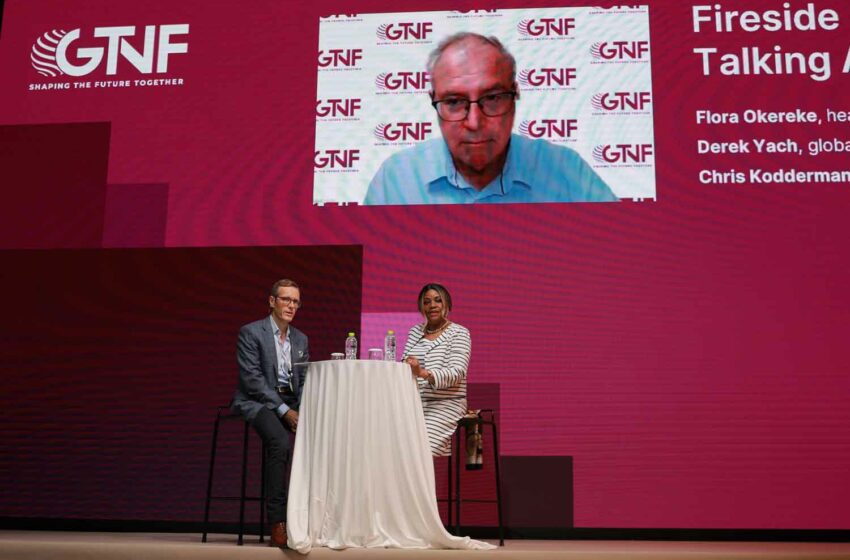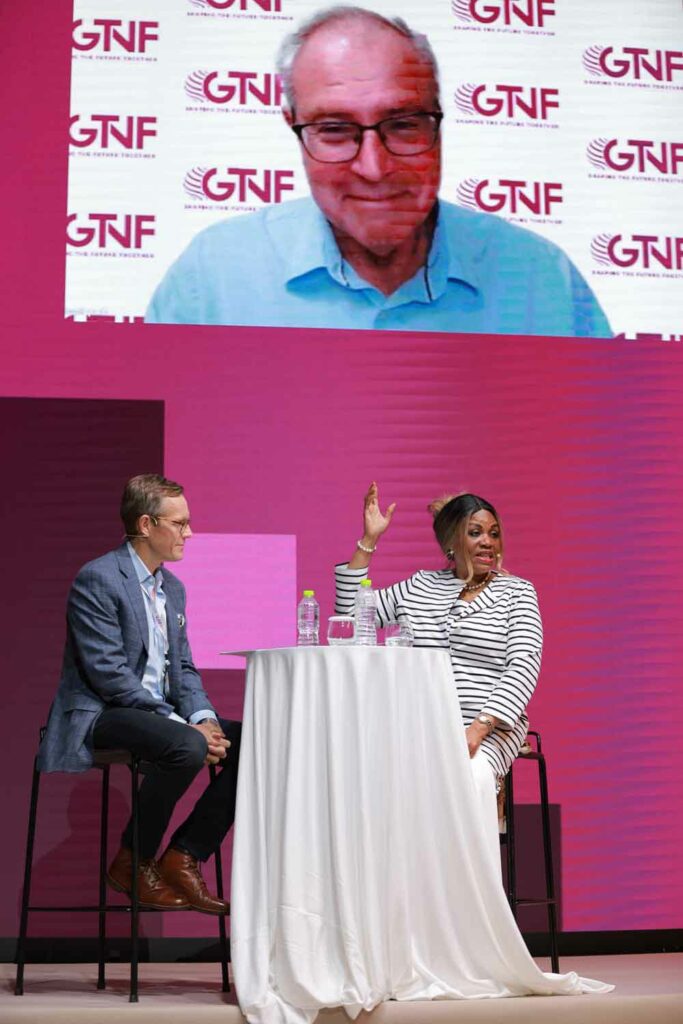Fireside Chat: Talking About COP10

 The upcoming 10th meeting of the Conference of the Parties (COP10) to the World Health Organization’s Framework Convention on Tobacco Control (FCTC), which will take place this November in Panama, was the theme of a “fireside chat” moderated by Chris Kodderman, director of Kodderman Public Affairs.
The upcoming 10th meeting of the Conference of the Parties (COP10) to the World Health Organization’s Framework Convention on Tobacco Control (FCTC), which will take place this November in Panama, was the theme of a “fireside chat” moderated by Chris Kodderman, director of Kodderman Public Affairs.
The disinformation that is making physicians skeptical about reduced-risk products and the misinterpretation of the FCTC’s Article 5.3 are the two biggest impediments to tobacco harm reduction (THR), said global health advocate Derek Yach, who was significantly involved in shaping the FCTC treaty. In his prework on the FCTC, Yach related, he invited tobacco companies to hear directly from them how the complex health problems relating to tobacco could be solved. “We never built on that, and then the shutters came down.”
Flora Okereke, head of global regulatory insights and foresights at BAT, said the opportunity in COP10 lay in the fact that both the industry and public health have the same goal: getting people off cigarettes. In addition, she reminded her audience that the treaty mentions THR, which seems to suggest that it’s possible for countries to explore alternative ways of reducing smoking apart from handling the demand and supply side. “That provision has never been talked about in COP,” said Okereke. “We now have an array of reduced-risk products, consumers who have indicated that they can live with these products, and countries with experiences that are proof that adopting this THR approach as a policy has led to a decline in smoking rates.”
Recent WHO documents, reports and statements suggest that the global health body is skeptical about the role of smoke-free alternatives in smoking cessation and concerned about underage access—a sentiment that will likely be echoed by the convention secretariat at COP10, Okereke said. “However, the treaty makes it clear that the power for decision-making is within the parties, insisting that decisions are made by consensus. If parties wanted to share their positive experience with THR, this is an opportunity for them to start requesting an independent team to evaluate the role of these products. All they would have to do is use their mandate effectively and withhold their consensus.”
Yach pointed out that by developing guidelines on Article 5.3, the secretariat went beyond their legal briefs. “All of the guidelines that include words such as ‘banning,’ ‘demonizing,’ [and] ‘excluding’ in my view are against international law,” said Yach. “We have allowed these guidelines to slip away as if they are facts, but they’re not, and they need to be challenged legally. The member states are the best to do this.”
At COP10, Yach recommended, countries with positive experiences with THR should share the positive changes that their policies have brought about. He also called for the industry to come together in a consortium to take concerted action. “It is long overdue that tobacco companies, despite competition, recognize that there are some areas where they must come together and present a united front that, I believe, would build confidence in their long-term intent.”
For this approach, Yach singled out two areas: “A commitment made between the industry to prevent youth access would be very powerful.” In addition, he said, referring to an example where pharma giant Merck collaborated with the WHO to eliminate river blindness disease in West Africa and committed to making the drug forever, the tobacco industry should harness the use of nicotine pouches and snus. “This way, they could eliminate oral cancer in South Asia,” said Yach. “If they were to make that bold statement that they want to do this with the WHO, member states and all other private and nongovernmental organizations together, this would be a surprising and bold move that would get people to take note, particularly the people in these countries who are dying at the rate of 350,000 per year.”
